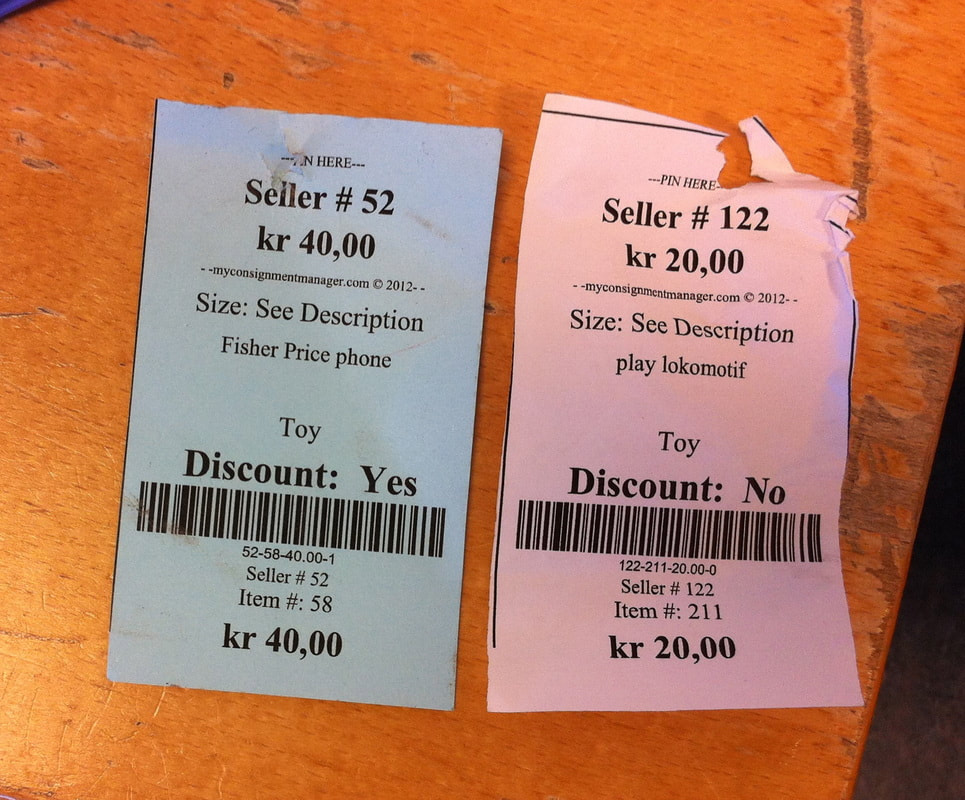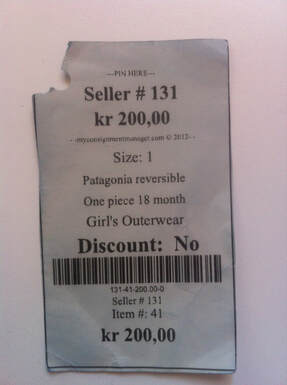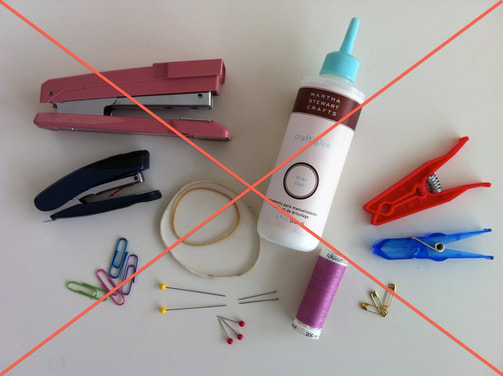How to Print, Reinforce & Attach Your Tags
STEP 1: PRINT
HOW TO PRINT YOUR TAGS.
- Login to your MyCM account.
- Click on the Manage Items tab and you will see a list of all your items.
- You can choose to see from 24 to 216 entries at the drop down list at the top left of the page. You can choose to print your tags all at once, or at different times. Each page makes 8 tags, so it is wise to print tags in multiples of 8.
- Select your items individually or click the Check All box.
- Click on the Print Tags button and click on the link to download and open a PDF file of your generated tags.
- Print your tags using the required printer and paper as listed below.
- After you print your tags, please add your own "mark" to your tags to make them uniquely your own. This will help the volunteers sort items quickly and accurately after the sale. Try to make these marks consistent (i.e. same color, same place on the tag). You can mark each tag with the same rubber stamp, sticker, or handwritten symbol (star, heart, etc.). Or you can highlight something on the tag (i.e. seller number, or along the top of the tag) with the same color. But just make sure you do not cover the barcode.
PAPER REQUIREMENTS.
Tags should be printed on white or light colored paper 160 g or heavier.
(U.S. paper equivalent is 60#, 65# or 67# cardstock).
(U.S. paper equivalent is 60#, 65# or 67# cardstock).
- NO dark colors. WHITE is the best.
- Do NOT print on regular copy paper (80-90g) unless you plan to laminate your tags. The tags will tear, wrinkle and bend, and the scanners will not be able to read the barcode (and we will not be able to sell your item).
- No fuzzy or textured paper because the barcodes will bleed.
- No PHOTO PAPER!!! It is impossible for the barcode scanner to read the barcode--we know this from experience!!
PRINTER REQUIREMENTS.
It is best to use an inkjet printer on the normal print setting.
- Laser printers are fine to use, but do not use dot matrix printers.
- Use the NORMAL print setting--best quality is too dark and causes the barcodes to bleed.
- If the barcode lines bleed together or you cannot see white lines between the barcode, reprint using a lower print quality such as the "draft" setting.
- If you have a color printer, select "Black Cartridge Only" from the printing properties screen. Otherwise, the tags can appear purple and blurry.



